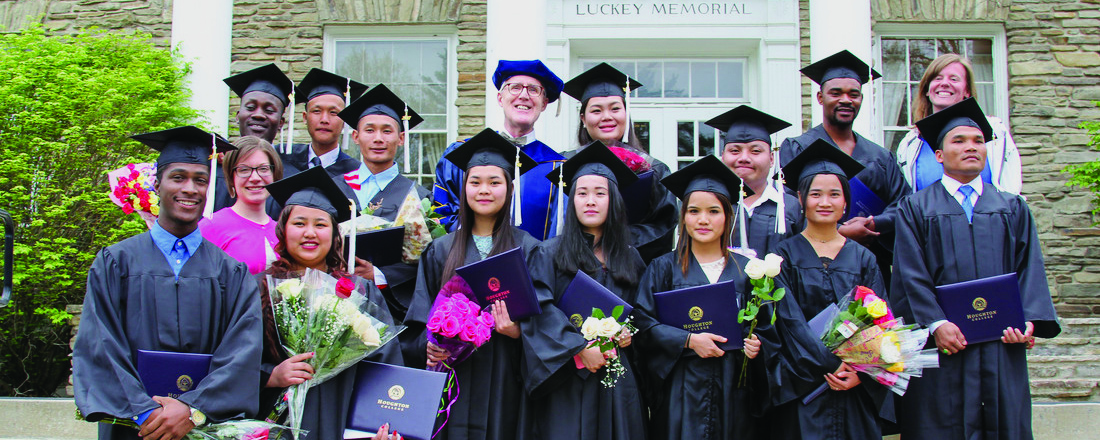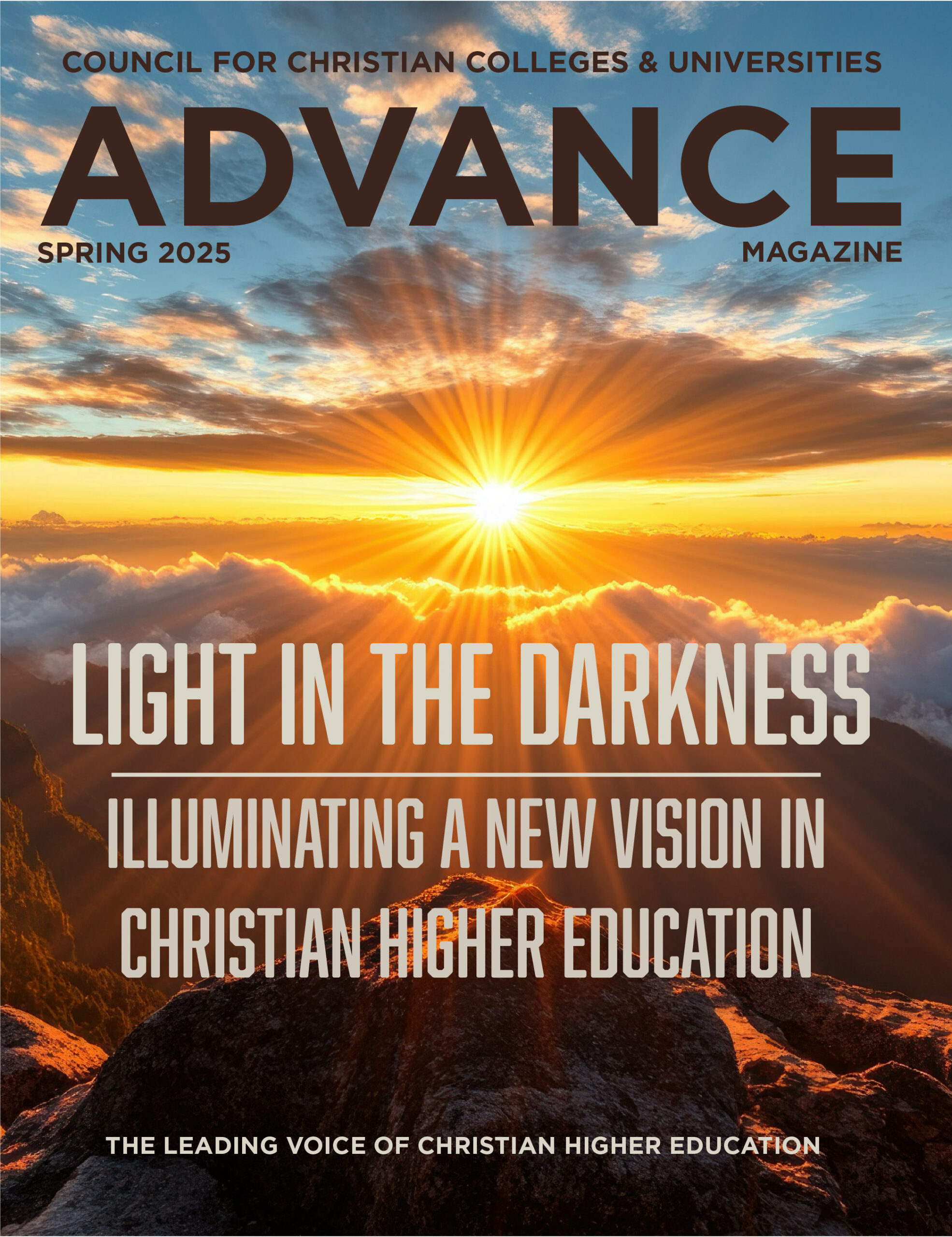Magazine
In 2014, Houghton College, located in western New York, launched a satellite location in Buffalo with the goal of providing a low-cost education to local college-bound students from under-served populations – specifically refugees.
“Buffalo became home to many refugees, and providing them with an opportunity after high school in an environment designed for them was an unmet, common need in Buffalo,” says Cameron Airhart, dean of Houghton College Buffalo.
An accredited associate’s degree is offered at Houghton College Buffalo and is transferable to Houghton College or to any four-year institution in the U.S.
Nearly all students at Houghton College Buffalo are from refugee and immigrant families in which English is a second language. The program aims to provide an education for refugee and immigrant students without them leaving their community or incurring debt. The low-cost financial model works by having students use federal, state, and Houghton College grants to make the program practically free for most of its students.
Classes are held in rooms of the First Presbyterian Church in Buffalo’s West Side. So far, 35 students have graduated with an associate’s degree (a graduation rate of 80 percent); 60 students are currently enrolled.
“We meet their language needs and address issues of interrupted educations,” says Airhart. “Student growth in all areas of their lives has been very gratifying to watch.”
Seeing a similar need in Utica, New York, Houghton is launching a second satellite location in the fall of 2017, based on the Buffalo campus model.
“The United Nations High Commission on Refugees gave Utica the moniker ‘the town that loves refugees’ in their quarterly journal about ten years ago,” says Mark Caruana, a Houghton alumnus who is the new dean of Houghton College Utica. Houghton College Utica formally began offering classes in August with a cohort of approximately 25 students.
Resettlement of refugees in Utica, located in central New York, began in the 1970s through the Mohawk Valley Resource Center for Refugees. Displaced persons from countries such as Bosnia, Vietnam, Somalia, Sudan, Syria, and Myanmar (also known as Burma) have made Utica their home in recent decades. Today, Utica has a population of 62,000; refugees and new immigrants make up about 20 percent.
Caruana first began working with refugees nearly two decades ago in his role as pastor of Tabernacle Baptist Church of Utica, when many ethnic minority Karen refugees from Myanmar immigrated to Utica. Caruana believes that Houghton College’s efforts to provide access to higher education for refugees and new immigrants “is part of Houghton’s identity and its sense of mission and calling.”
“Houghton was founded in 1883 by a Wesleyan Methodist minister who saw the need for education in rural Allegheny county … [for] poor farm kids who didn’t have access to education,” says Caruana. “It seems to me that the institution is coming back to its roots. This time, the population is not rural farm kids but urban dwellers who are beginning new lives in this country after fleeing persecution, warfare, and a host of other challenges.”
Elaina Loveland has been a professional writer since 1999. She is the author of two books: Creative Colleges: A Guide for Student Actors, Artists, Dancers, Musicians, and Writers and Creative Careers: Paths for Aspiring Actors, Artists, Dancers, Musicians, and Writers.




